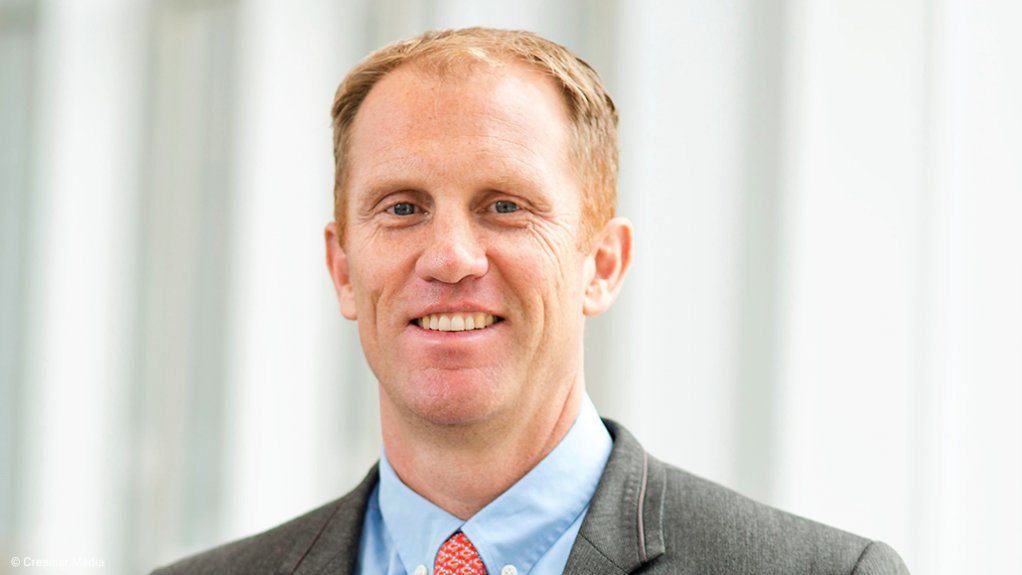Energy Council of South Africa CEO James Mackay believes an expedited promulgation of the Electricity Regulation Amendment (ERA) Bill together with the unbundling of Eskom will send a clear signal to stakeholders and investors that the “political will” exists to place the country’s poorly performing electricity sector on a sustainable pathway.
He tells Engineering News that South Africa’s current market structure, which is dominated by a single vertically integrated utility, is out of line with the markets in operation in other developed and developing economies and is, thus, an impediment to much-needed generation, transmission and distribution investment.
“We are probably one of the most backward economies globally around reform,” Mackay asserts, noting that other middle-income economies, as well as all the Brics bloc countries, have already unbundled their markets to support their energy transitions.
He describes the enactment of the ERA legislation as both an important market signal as well as a signal of the country’s commitment to reform.
“We've got great technical plans and good technical ideas of what needs to be done, but they are sitting there pending a real political signal.
“I think that the ERA encapsulates that, but if there isn't political will to push the ERA through, then a lot of the plans will simply gather dust,” Mackay, who is deeply involved with the National Energy Crisis Committee (Necom), tells Engineering News.
For that reason, business used its latest regular meeting with President Cyril Ramaphosa and several other government Ministers at the Union Buildings on August 1 to make an appeal for the ERA to be approved by lawmakers during the current Parliamentary term.
It was agreed at the meeting that the Bill should be expedited within the sixth Parliament as one of the “critical next steps” required to restore confidence.
In a joint statement, it was argued that the ERA Bill was crucial to ending loadshedding, expediting energy development, expanding transmission infrastructure, establishing a competitive electricity market, and attracting investment in the energy sector.
Mackay acknowledges that having the legislation approved ahead of the 2024 elections will prove challenging, particularly given that no formal programme for its passage through Parliament has been agreed following the Bill’s tabling on July 20.
However, he is convinced that there is still time to make material progress, pointing to the speed at which the Eskom debt relief package was processed by lawmakers earlier this year.
“Until the ERA is actually through Parliament, everyone is going to be unsure if there's the political will to reform our energy system,” he adds.
Likewise, Mackay views Eskom’s unbundling as crucial for expanding the grid, as well as to provide local and international investors with the assurance that the playing field between Eskom and independent power producers is truly level.
He welcomed the National Energy Regulator of South Africa’s recent decision to grant the National Transmission Company South Africa (NTCSA) a transmission facilities licence and expressed optimism that the associated trading and import/export licences with be similarly transferred from Eskom to the NTCSA in the not-too-distant future.
The unbundling of Eskom took a further step forward this month, when Public Enterprises Minister Pravin Gordhan sent a letter to the board providing his consent for the transfer of Eskom’s distribution assets from Eskom Holdings to a newly established distribution company.
However, independent boards have yet to be appointed at any of the entities, including the NTCSA, whose unbundling has been prioritised.
Once the unbundling is in place, Mackay believes it will be possible for new codes to be released for public comment, which will outline how new market arrangements, such as wheeling and trading, will be implemented.
These far-reaching market reforms, Mackay explains, are designed to ensure that the future electricity supply industry is more sustainable in the face of the technological changes under way to support the decarbonisation of the electricity sector.
Business is also active, however, in dealing with the immediate problems afflicting the industry, including the poor performance of the Eskom coal fleet, and the slow progress in adding new generation capacity to the grid.
These issues are being tackled through workstreams established under the Necom, which has received R100-million in support from the business-funded Resource Mobilisation Fund, as well as the injection of private sectors skills and, in some cases, mentorship.
Mackay says the workstreams have set clear priorities and objectives with the ultimate aim of reducing and eventually eliminating loadshedding.
Besides unlocking private investment into generation and possibly also the grid itself, there is currently a major effort under way to turn around four midtier coal performers, namely Matla, Kendal, Kriel and Majuba.
“We are still in the structural Stage 4 to 6 of loadshedding for the rest of this year, but by the end of next year, we may be close to ending loadshedding,” he asserts.
EMAIL THIS ARTICLE SAVE THIS ARTICLE ARTICLE ENQUIRY
To subscribe email subscriptions@creamermedia.co.za or click here
To advertise email advertising@creamermedia.co.za or click here











